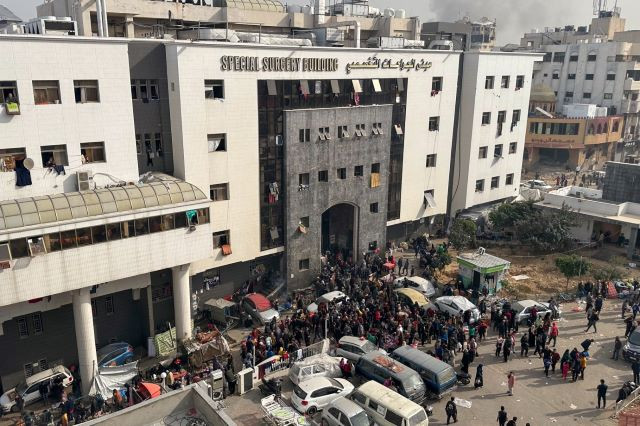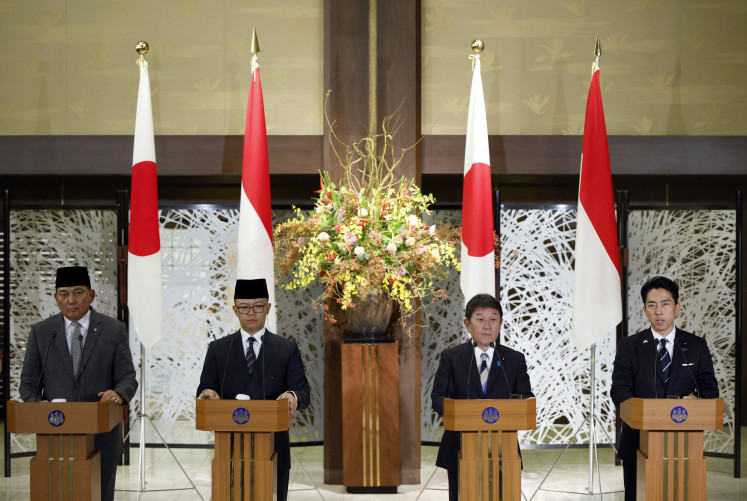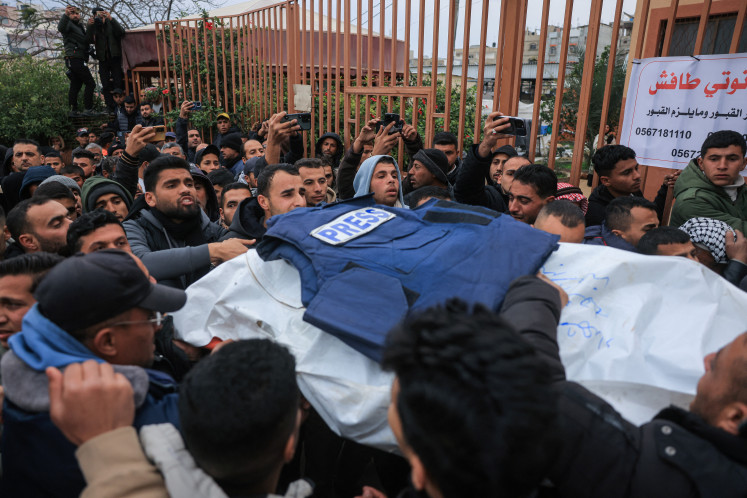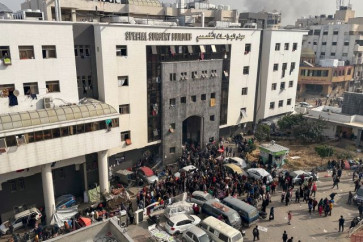Popular Reads
Top Results
Can't find what you're looking for?
View all search resultsPopular Reads
Top Results
Can't find what you're looking for?
View all search resultsHow to build a resilient health system during conflict
The UN could accelerate the release of an official encouragement for health organizations around the world to focus more on curbing health access challenges in Palestine.
Change text size
Gift Premium Articles
to Anyone
 Gimme shelter: Displaced Palestinians gather in the yard of Gaza's Al-Shifa Hospital on Dec. 10, 2023 as battles continue between Israel and Hamas in the Palestinian territory. Hundreds of makeshift tents stand in a desolate landscape at the foot of the hospital, where at least 30,000 people have taken refuge. (AFP)
Gimme shelter: Displaced Palestinians gather in the yard of Gaza's Al-Shifa Hospital on Dec. 10, 2023 as battles continue between Israel and Hamas in the Palestinian territory. Hundreds of makeshift tents stand in a desolate landscape at the foot of the hospital, where at least 30,000 people have taken refuge. (AFP)
Not even an hour after the cease-fire had ended, Israel started to bombard Gaza in retaliation for Hamas’ attack on Oct. 7. The latest death toll based on the Gaza authorities’ data by Dec. 11 for these two months of conflict soared to 18,000, with more than 70 percent being children and women. Moreover, 48,800 people are wounded and 7,000 people still missing in uncertainty under the rubble.
Nearly 50,000 houses were destroyed, and 240,000 others were severely damaged. Al Jazeera reported a total of 88 mosques and three churches were targeted by the Israeli army. The United Nations Relief and Works Agency for Palestine (UNRWA) has affirmed that 1.5 million people in Gaza are internally displaced. The number is four times its sheltering capability.
Currently, not only among the death toll are 250 medical staff, but at least 26 out of the 35 hospitals in the Gaza Strip are not providing service due to the lack of electricity, fuel, medication and the attacks on infrastructure. The World Health Organization declared that the number of patients awaiting treatment is at 150 percent capacity and the hospitals are forced to operate with less than one-third of their normal staffing levels, as 449 Israeli attacks on health services, ambulances and medical teams have been documented. Accordingly, the WHO estimated that 15 percent population is living with disabilities and 25 percent of the population is experiencing mental health problems.
Besides, not having enough power to operate water wells and sustain sanitation services across the entire Gaza Strip may also lead to further health problems, as sewage and solid waste are accumulating in the streets. As a consequence, the WHO has detected cases of chicken pox, scabies and diarrhea, exacerbated by consumption of water from unsafe sources.
Meanwhile, some people are consuming saline water from agricultural wells, which poses an immediate health risk, especially for babies under six months, 50,000 pregnant women and people with kidney disease. Unless water, sanitation facilities, electricity and fuel are restored, the prevalence is expected to rise.
Palestine's health system was already in bad condition even before the conflict upsurge.
Many Asian countries have extended assistance, especially Indonesia, which had contributed to recourse Palestinian’s health issues far before the tension escalated. From the government to non-profit organizations, Indonesia has been sending aid periodically, even establishing a hospital in Gaza.


















